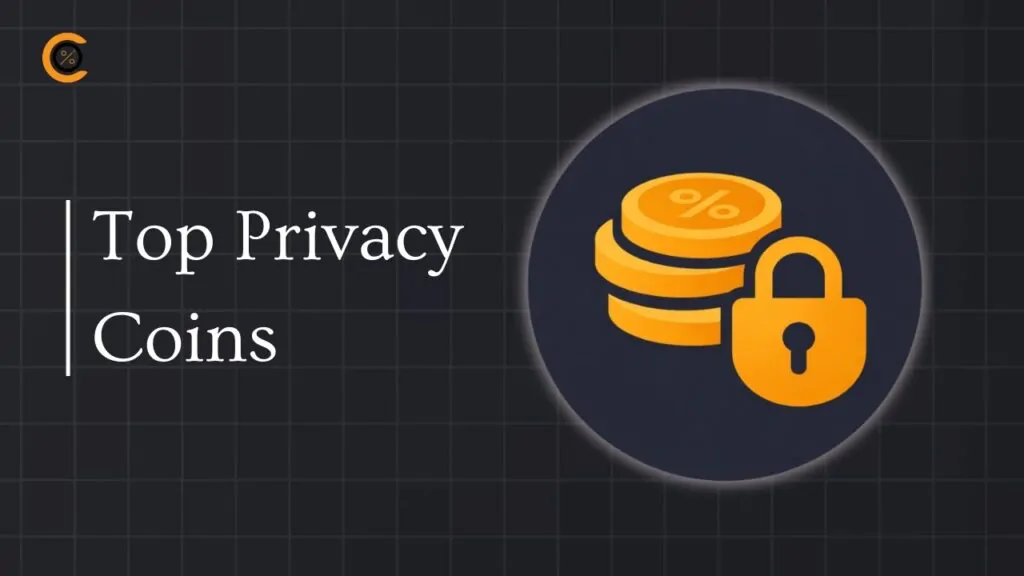- Crypto payment platform built for subscription automation, similar to Stripe but for Web3.
- Supports on-chain recurring billing across Solana and EVM chains like Polygon.
- Acquired by MoonPay, serving over 6,000 merchants and millions of users.
- Offers checkout solutions via Pay Links, Widgets, and Helio Pay.
- Integrates with platforms like Discord, Telegram, and e-commerce tools like Shopify and WooCommerce.
- Allows wallet-based signups with support for stablecoins, native tokens, and fiat via Stripe/PayPal.
- Features include developer APIs, community tools, gated content, and auto-off-ramp to fiat.
- Charges a base 2% transaction fee (1% with HelioX Pass); optional features have small add-ons.
- Does not custody user funds; payments go directly to wallets via smart contracts.
- Offers merchant verification, transaction audits, and access controls for teams.
Discord communities and Web3 projects have long faced a massive automation gap when it comes to managing crypto payments, from botched subscription flows to clunky role assignments and zero native support for wallets. Helio made its debut to fix exactly that. Originally built on Solana (with support later extended to Polygon and other chains), Helio set out to streamline how crypto-native businesses, creators, and DAOs handle recurring payments, much like Stripe, but designed for on-chain systems and wallet-first workflows.
But beyond just automating monthly charges, Helio is building something more foundational: a smooth payment infrastructure that powers everything from NFT memberships and gated content to SaaS billing, tokenized services, and Discord-based access. So if your Web3 project has a community, content, or customers, Helio might be worth a closer look.
Helio Overview
Helio made its debut as a subscription automation tool built for web3, very much like Stripe but for on-chain recurring payments. It launched on Solana, offering lightning-fast, low-cost transactions, and has since expanded to EVM chains such as Polygon, making it accessible to a broader audience of users and builders. It was recently acquired by MoonPay, and today supports Crypto Checkouts for over 6,000 merchants and apps, serving millions of users worldwide.
Helio enables creators, platforms, and communities to simplify their payment processes by integrating crypto payments alongside Stripe, PayPal, and other providers. Recognizing that platforms like Discord, Telegram, and X are central hubs for crypto users, Helio delivers an improved billing experience with subscription options, gated links, and auto-filled checkout pages sourced from Discord, customer forms, and other data channels. By removing friction at every stage, Helio offers a smarter way to collect payments on autopilot.
Helio Features
- On-chain Recurring Billing
Automate subscription payments natively on Solana (and now EVM chains) without manual intervention.
- Multi-chain Compatibility
Support for Solana’s low-fee, high-speed network plus EVM-based chains (e.g. Polygon) to reach a broader audience.
- Wallet-centric Sign-Up & Checkout
Allow users to register via email or connect a Solana wallet (Phantom recommended), then pay directly from their wallet.
- Unified Payment Methods
Accept stablecoins, native tokens, credit/debit cards (via Stripe/PayPal rails) and auto-convert crypto to fiat.
- Developer-First APIs & Widgets
Generate pay links, embedded checkout embeds, custom swap widgets, branded white-label flows and transaction verification endpoints.
- Creator & Community Tools
Helio offers a Discord bot that lets you manage subscription payments seamlessly within your server. Community members can pay in USDC or a wide range of other tokens, and you maintain full control over who has access. For NFT projects, Helio provides advanced pre-sale links complete with raffles and allowlists, plus channel gating to ensure only approved participants can mint.
- E-commerce & Marketplace Plugins
Out-of-the-box integrations for Shopify (Solana Pay), WooCommerce (Helio Pay), EventNook, Bizzabo and more—installable in minutes.
- Auto Off-Ramp & Payouts
Route earnings automatically into your bank account or preferred on-ramp provider based on region and currency.
Helio Pros and Cons
| 👍 Helio Pros | 👎 Helio Cons |
|---|---|
| ✅ On-chain subscription automation that mirrors Stripe’s ease of use but for crypto payments | ❌ Helio is still maturing and not yet as widely adopted as Stripe |
| ✅ Native support for Solana’s fast, low-fee transactions | ❌ Primary focus on stablecoins means BTC and ETH support is less prominent |
| ✅ Expanded multichain compatibility | ❌ Reliance on wallet interfaces can be confusing for users unfamiliar with crypto |
| ✅ Unified billing across crypto, Stripe, PayPal and auto off-ramp to fiat |
Helio Sign Up
Getting started with Helio is simple and quick. Helio allows you to sign up using either your email address or your crypto wallet, though since it’s built on Solana, the Phantom Wallet is the most suitable choice for the Solana network. Once registered, you’ll arrive at your Helio dashboard, where you can manage subscriptions, create payment links, view transactions and access your Helio wallet. Just follow these easy steps to begin:
Step 1: Open your browser, navigate to the Helio official website, and click on the “Launch App” button.
Step 2: Choose your preferred sign-up method on the next page: connect with your Phantom Wallet or register with your email address.
Step 3: Complete verification: verify your email if you signed up by address, or grant Helio permission to connect to your Solana wallet if you chose the wallet option.
Step 4: Once setup is complete, you’ll be redirected to your Helio dashboard. From there, you can manage subscriptions, generate payment links, review transactions, and access your Helio wallet.
Helio Fees and Pricing
Helio is free to join, with a standard 2 % transaction fee and a reduced 1 % rate when holding a HelioX Pass NFT. Optional features incur small surcharges: 0.25 % for swaps, 1 % for cNFT airdrops, 0.75 % for Blinks and 0.50 % for auto-offramp. HelioX Pass holders also gain loyalty rewards and enterprise-level support
Helio Solutions
Pay Links
With Helio’s Pay Links, you can generate a payment URL in under two minutes; no code required. Simply define your product, set a price in crypto or fiat, and choose which networks and tokens you’ll accept. Each link supports dynamic pricing and customizable themes, letting you share a seamless checkout experience via email, social channels or your own site. Payouts go straight to your selected wallet, so funds never sit in an intermediary account.
Checkout Widget
The Helio Checkout Widget embeds in your website or app with just a few lines of JavaScript or React code. It accepts USDC and over 100 other digital currencies across Solana, Ethereum, Polygon, Base and Bitcoin, along with card payments through an integrated on-ramp. You can configure appearance and behavior to match your brand, then drop the widget into any page for a unified, wallet-friendly payment flow.
Helio Pay
Helio Pay offers a white-label solution that unifies crypto and traditional payment rails under one roof. It handles transaction routing, automatic price conversion and optional swaps so your users pay in the currency they prefer, while you receive the funds you choose. Whether you operate a marketplace, subscription service or standalone app, Helio Pay keeps the experience consistent and your operations lean.
Helio Security
You’ll never have to worry about Helio holding your funds; every payment moves straight into your wallet via smart contracts. You can inspect the contract addresses, review audit records on demand, and even initiate manual withdrawals if you choose. Role-based access control keeps team permissions tight, email reminders alert you before renewals, and every transaction is logged in detail.
Helio includes KYC/B merchant checks and safety tools to help you confirm a recipient’s credibility before sending crypto. As a decentralized protocol, Helio routes payments directly from your wallet to the merchant; irreversible and custody-free. Always use those built-in trust signals to ensure you’re dealing with a verified party.
Because Helio operates across Solana, EVM chains and Bitcoin, it inherits the unique risks of each network. Smart contracts are audited regularly by Ackee Blockchain to shore up security, but you should still stay informed. Reviewing those audit reports can give you extra confidence before you transact.
Helio Customer Support
Helio offers support primarily through its active Discord community, where users often discuss common issues and share practical solutions. It’s a helpful place to learn from others, especially around wallet hygiene, contract interactions, and other technical topics.
If you need direct assistance, Helio also provides email support. While response times can vary, they typically reply within 24 hours. This gives creators and platforms a reliable fallback when quick answers aren’t available in the community.
Final Thoughts
Helio is doing for Web3 what Stripe did for Web2—making payments simple, fast, and widely accessible. For creators, DAOs, and tokenized communities, Helio goes well beyond the basic “tip jar” model. It provides a crypto-native alternative to traditional billing systems, tailored for a decentralized environment where flexibility and automation are essential.
Now operating on both Solana and Polygon, Helio shows strong momentum toward broader adoption. Its integration with platforms like Discord and Telegram allows creators and community managers to focus more on content and services rather than worrying about handling payments and managing subscriptions manually.
These steps reflect a goal of making crypto payments practical and straightforward for digital-native businesses. As Web3 develops, Helio aims to reduce technical barriers and provide useful tools for creators and organizations managing payments and subscriptions.
FAQs
1. Can I use Helio for managing one-time event ticket sales or is it only built for subscriptions?
Absolutely. While Helio shines with subscriptions, it’s also flexible for one-time sales like event tickets, digital art, or downloadable content. You can create standalone payment links or embed widgets to sell products or tickets with custom pricing.
2. Does Helio offer analytics to track customer behavior or transaction trends?
Yes. Helio provides a dashboard where merchants can monitor payment trends, subscriber growth, and token usage across chains. While it’s not a full analytics suite, it gives you useful insights for optimizing your monetization strategy.
3. How does Helio handle failed or missed subscription payments from users?
Helio supports retry logic and email reminders for missed payments. If the wallet doesn’t have sufficient funds, the user gets notified to top up and the system attempts to charge again within a grace period.
4. Can I use Helio in combination with traditional CRM tools like HubSpot or Salesforce?
Helio does not have out-of-the-box CRM integrations yet, but its APIs allow developers to sync customer data or transaction details with third-party tools. Webhooks can be used to trigger workflows in your CRM.
5. Are there geo-restrictions for using Helio with fiat payment methods like Stripe and PayPal?
Yes. Since Stripe and PayPal operate under regional regulations, availability can vary based on your country. Crypto payments through Helio are globally accessible, but fiat options depend on local compliance.
6. Can I offer discount codes or promo pricing for crypto payments via Helio?
Helio does not currently offer built-in coupon code functionality. However, you can create multiple pay links with different pricing tiers and share those selectively as a workaround for promotions.



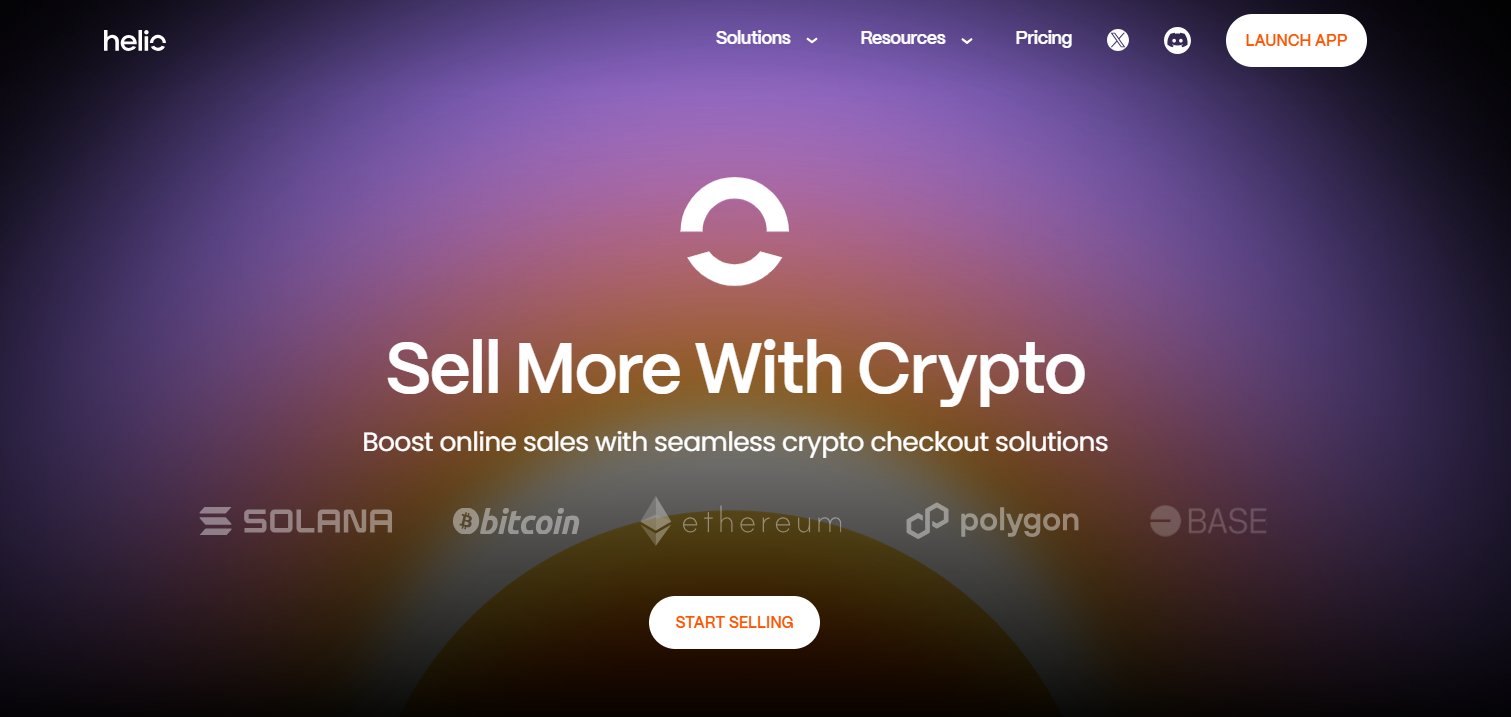
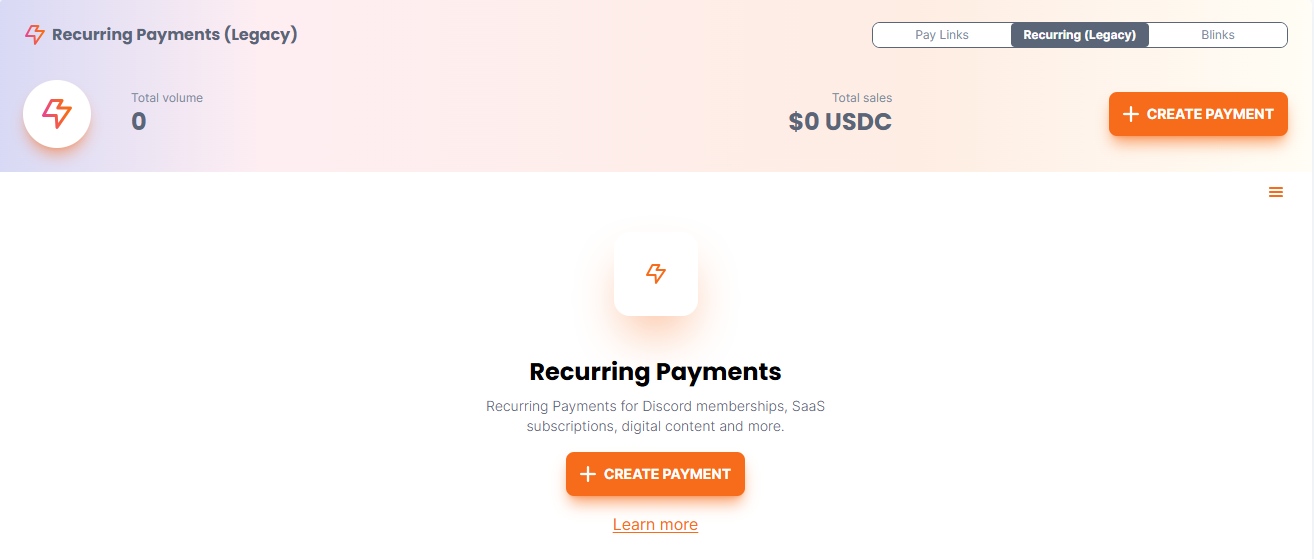

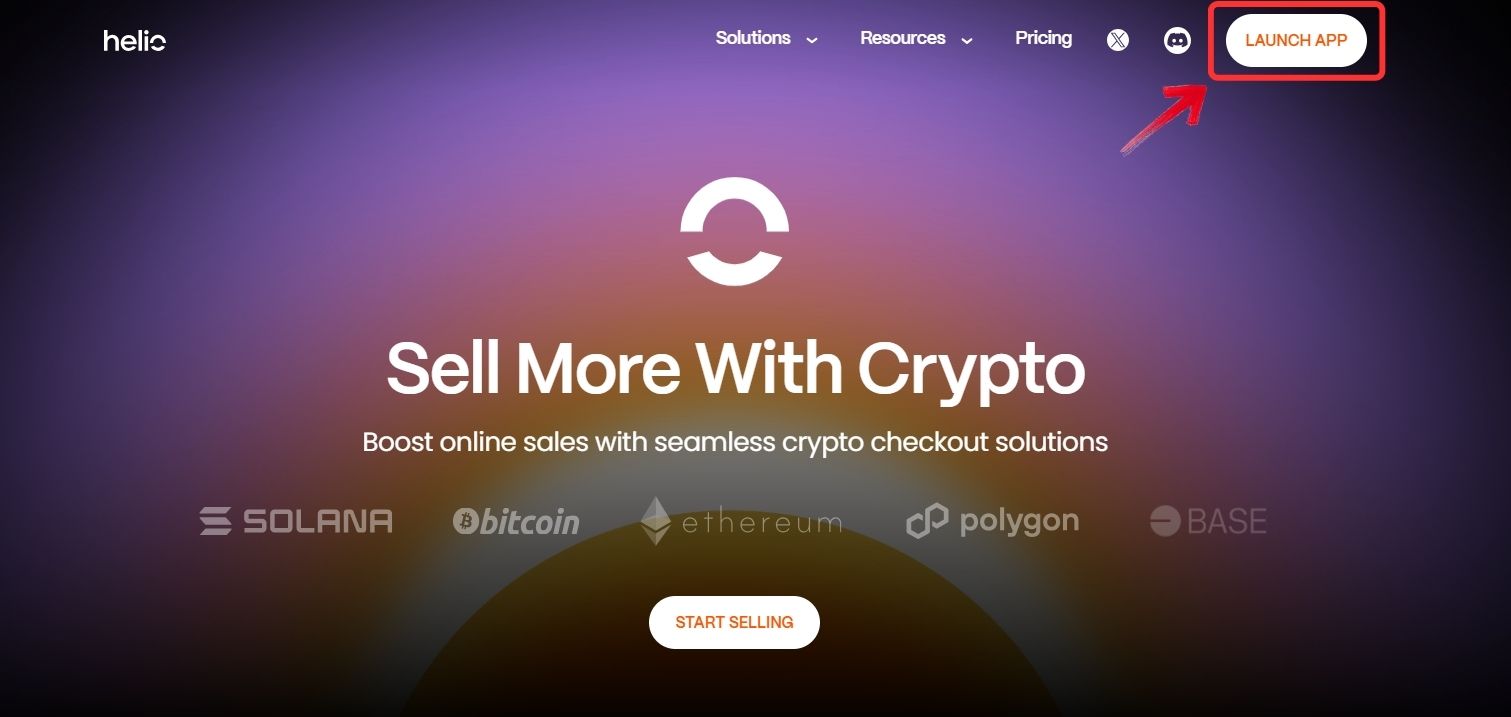
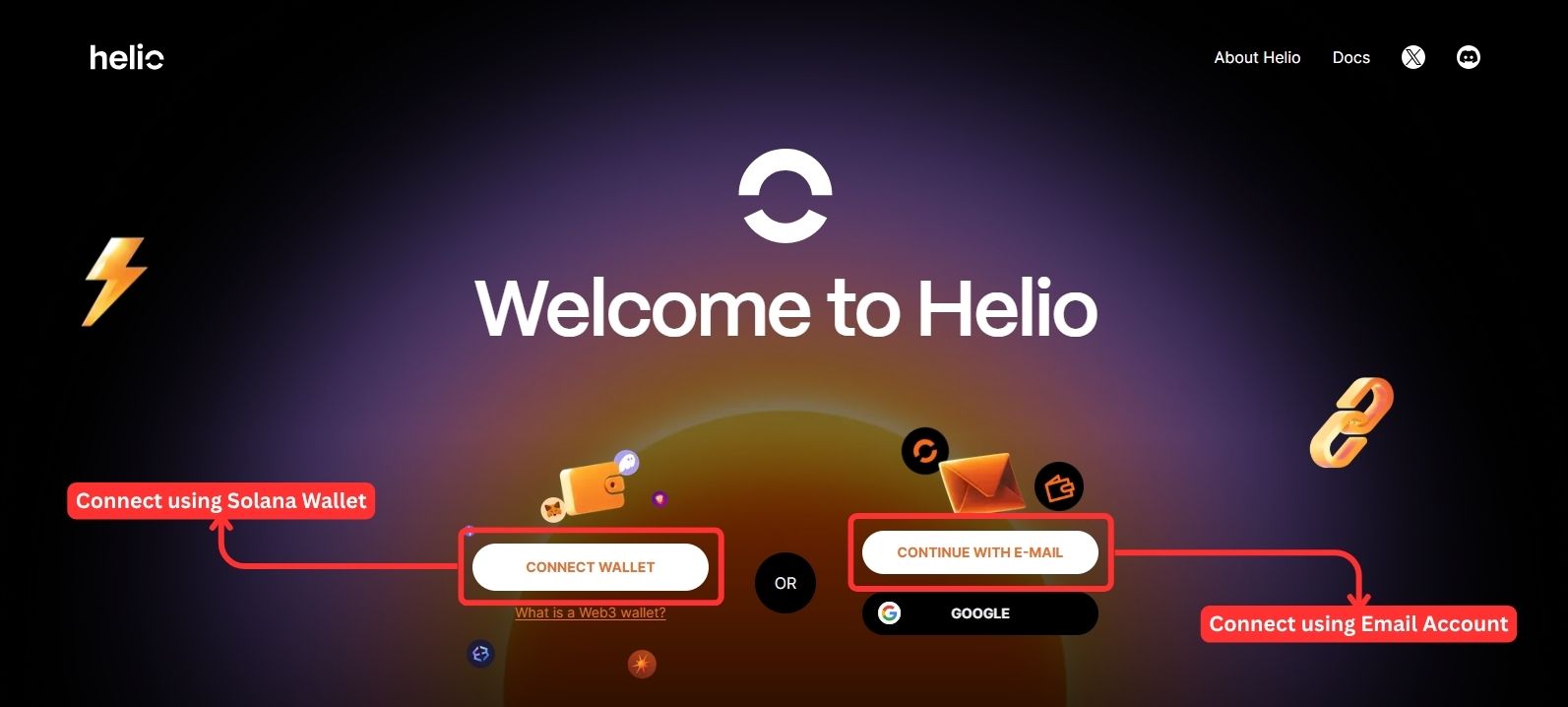
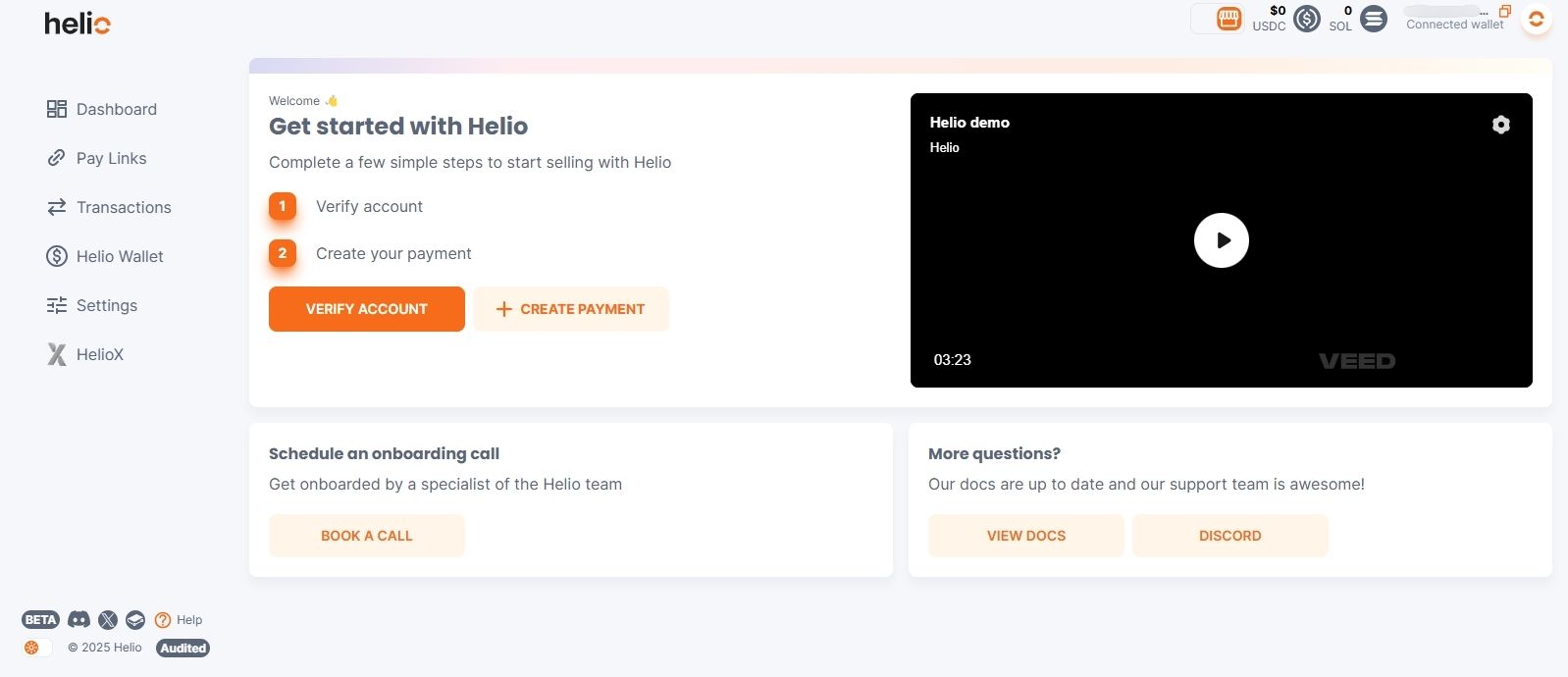

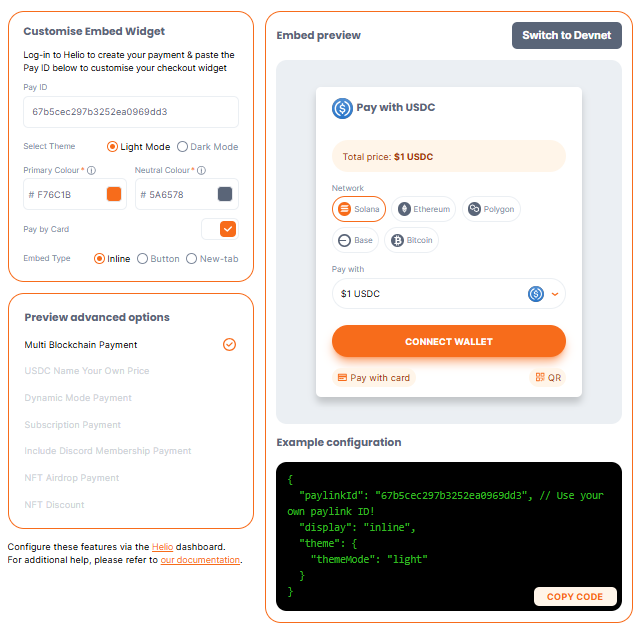
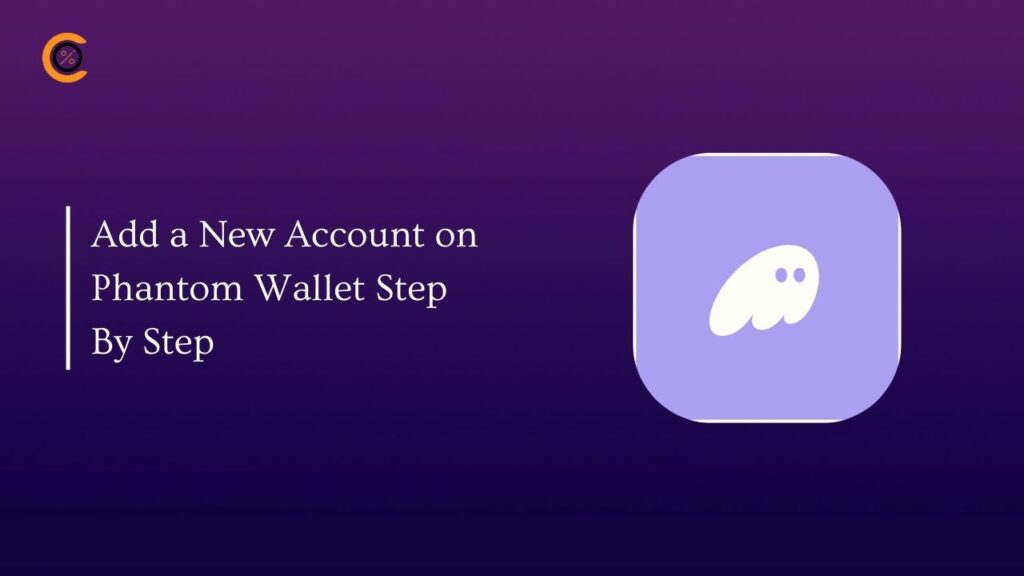
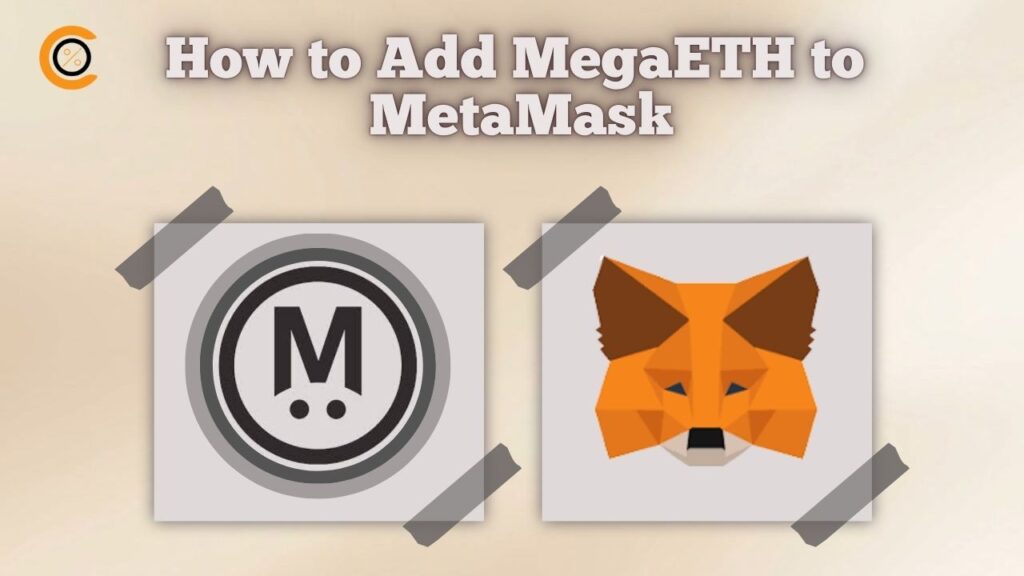

![How to Change the Language in Phantom [2026]](https://www.cryptowinrate.com/wp-content/uploads/2026/02/How-to-Change-the-Language-in-Phantom-2026-1024x576.jpg)
